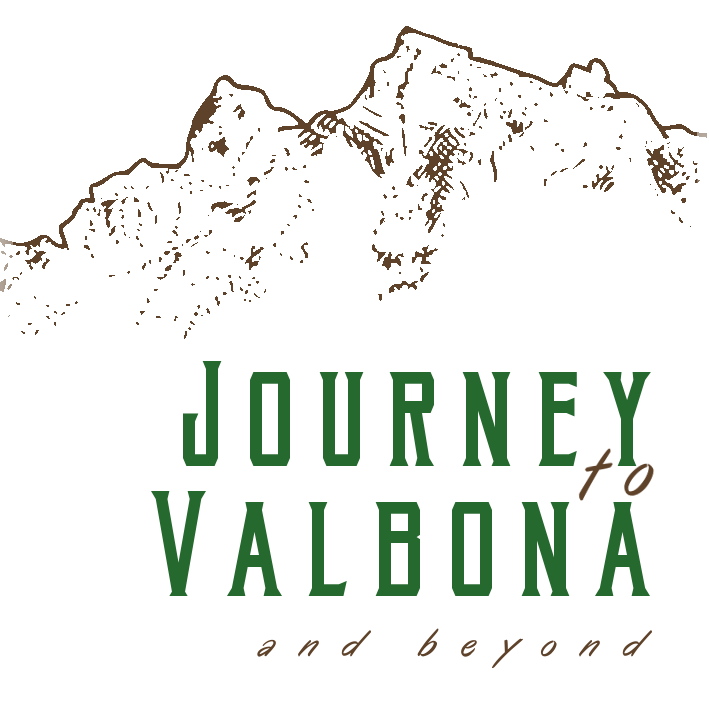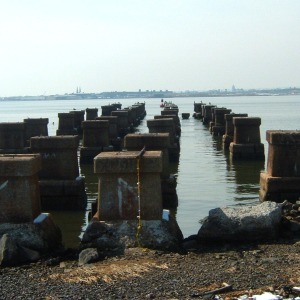Civilization is not Looking so Civilized
Something that’s been puzzling me slipped into place this morning. The question is something that people keep asking me, one way or another, and I haven’t been able to answer to any of our satisfaction yet. Put simply, it amounts to: Why do you prefer Albania to New York? By every system of modern reckoning, I seem to be indulging in a fit of the most stubborn and quixotic recidivism, and even Alfred, who loves his mountains fiercely, is suspicious that I will wake up one morning and flee in a panic, back to Civilization.
I went out to dinner with some friends last night. They are a little bit older than I am, and almost certainly wiser. They are the sort of people who keep up with events and news and politics. One is an academic who’s spent her life studying American Culture from an anthropological bent, another is a labor organizer, another works in the intestinal depths of the largest financial company in New York, and the last makes her living editing non-fiction books which of course seem to be mostly one long anatomizing of modern horrors. These are charming and likeable people, kind and intelligent, funny. There wasn’t any bombast of what my friend Stefan calls “Big Talk” (as opposed to ‘small talk’), but of course Things got touched on: the debacle of modern factory farming, the healthcare fiasco (really? People protesting against being able to go to a doctor? really?), the friend who works in finance stating clearly and calmly that she no longer wants to work in a world whose basic assumptions about what matters or what is even desirable are so clearly wrong . . . and each note of it strikes on this tired feeling I’ve had as long as I can remember, that something, somewhere – almost everything perhaps – has gone terribly wrong. For this I have been continually labeled a romantic, or impractical, but now, I wonder. I mean, these things really ARE wrong. The environment is heading for tatters. This most trend setting country has a social system that alternates being vicious with being criminally uncaring. The only real goals to aspire to are the accumulation of wealth (but what will there be to spend it on?) and the avoidance of difficult emotions by the judicious use of pharmaceuticals. Everyone seems to be able to pay lip service to the fact that it’s all heading for a big crash – is crashing? And yet no one tries to fundamentally change anything . . . .
Walking home with one of the friends after dinner, I try to mention, without sounding crazy, some of this sense of a very grim future here. “Oh yes,” she says calmly, “We’re in big trouble.” I wonder about what this will look like, when it comes home to roost. I go on to talk about reading accounts of France after WWII, those months when the Germans were gone but there was no government or system of order in place: the complete chaos and worse than chaos . . . and that was in living memory. Heck, I remember the days after 9/11, when there was no infrastructure of communication, and everything was reduced to word of mouth. I try to say that it seems to me that it’s possible that all our sense of order and assumptions of the inevitability of our mode of progress is just a veneer – a strong one at the moment, but one that could get swept away, and in this increasingly ruined environment, with this hapless, uneducated-about-anything-practical society, what would that leave?
Then, this morning, I read this: “We were living in the past not thinking of it; the scores of future centuries in which men would spread over Europe, invent private property, build great cities and empires, discover America, and invent machines – became as faint to us as the old memory of a dream. By the next day we had forgotten it all; two weeks later I was to come back to a room with a rug on the floor, a window in the wall, a bed, a stove, and feel such a sense of strangeness among them that, tired as I was, I could not sleep between unfamiliar sheets. Now that I am back in my own century, writing of those days in the Albanian mountains, I understand why men so easily slip into the ancient savagery of war and all war’s atrocities. All that we call civilization is like a tune heard yesterday, a little thing floating on the surface of our minds, which sometimes we can keep step to, and then in a moment it is gone so that we cannot remember it.” This is Rose Wilder Lane (Laura Ingalls Wilder’s daughter) who traveled through the Accursed Mountains in 1921.
This is not to say that Albania, or the Malësi in particular, are some sort of perfectly innocent Eden, away from the hopeless Sodom of New York City. But if we removed the veneer of civilization from our culture, what would be left? In the mountains of Albania there are some things which have survived, preserved, which we perhaps have lost – most obviously, a natural beauty and a nature which are still, for now at least, larger than the small creatures who move across them, and which still demands and receives the respect it should no doubt command everywhere and at all times. It is larger than we are. And there is a centuries upon centuries old social structure, embracing both extremes of harshness and kindness. In the lowlands of Albania, the world has “come to an end” many times over the centuries, but in the mountains, it seems to me, there is a sort of continuity I glimpse which I honestly find comforting.
A simpler way of saying all this is to recount: Last October, huddled under blankets which were the only source of heat we had, with candles lit that seem to give more light than candles here do (can this be possible? the thinner atmosphere at higher elevations?), while the snow fell outside, and wolves, to my certain knowledge prowled, I listened curiously to a noise I didn’t recognize. Grown impatient with my cocked head and tuned ears, Alfred says “Don’t worry, there’s no danger.” And I look at him amazed, that my curiosity has been mistaken for fear. “But Alfred,” I say, “Don’t you know? In my whole life, I’ve never felt safer.” And this, I realize, is absolutely true.


